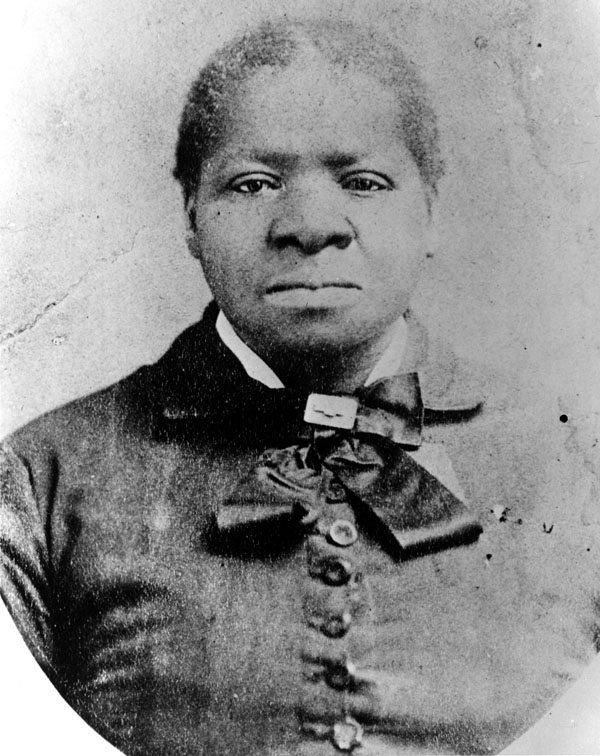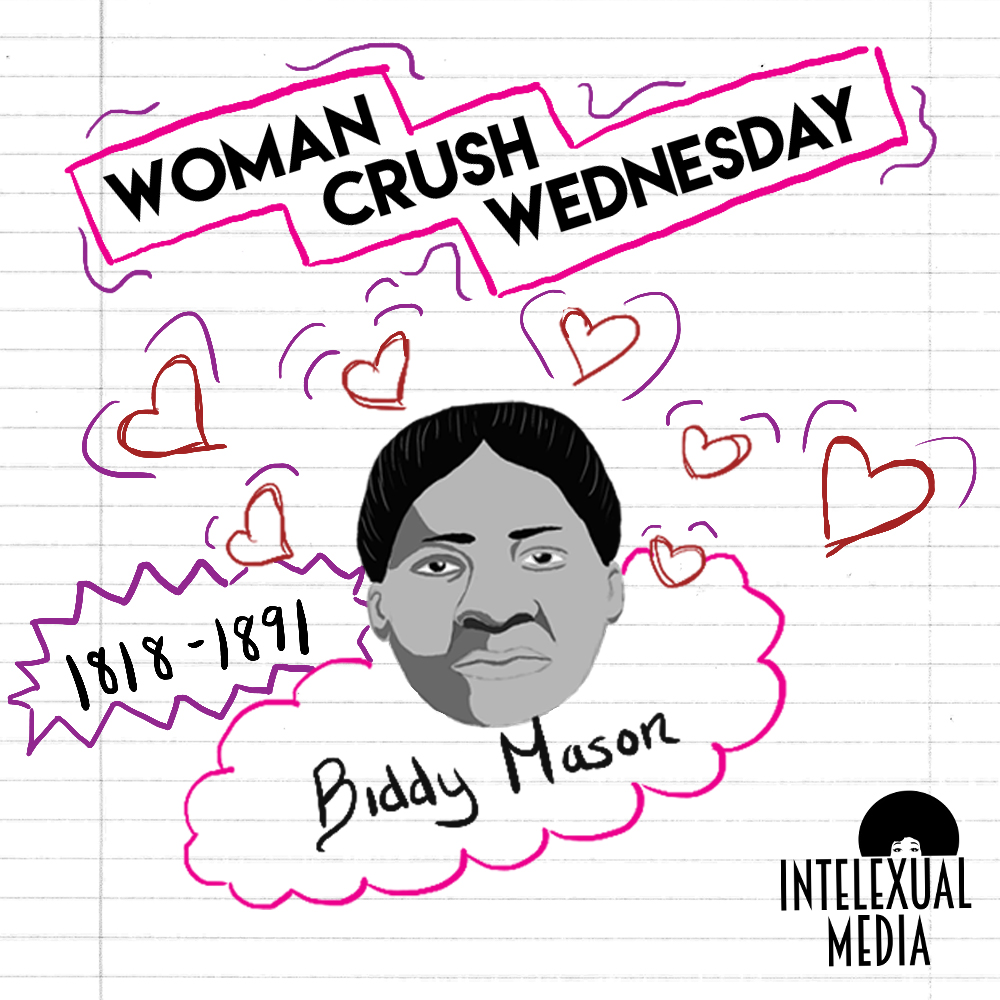Though she was born a slave in 1818, Biddy Mason went on to live an extraordinary life.

As a small child named Bridget she was gifted to newlywed Robert Smith and his wife. They lived in Mississippi, and Biddy went on to have three children. It is likely, according to historians, that Robert fathered at least one. In 1847 he experienced a religious awakening and converted to Mormonism. He then packed his family and slaves up for Utah. Biddy managed the cattle for the 2000 mile trip, between playing mammy, midwife, and cook. She spent most of the trip on her feet. They settled in Utah for a while before church leader Brigham Young sent some of his flock to California. Robert Smith and his crew of family members and slaves tagged along in 1851. In California Biddy learned from other blacks that the Compromise of 1850 had made slavery illegal there, and they urged her to seek her freedom. Being illiterate and a lifelong slave, Biddy was hesitant to challenge her master. She spent four years as a slave in California. By December 1855 Robert was getting antsy about leaving his slaves in the increasingly liberal state of California, so he decided to move to Texas. Biddy’s daughter was dating the son of some free negroes, which ultimately changed her life. The boy’s parents told the Los Angeles sheriff that Robert Smith was illegally holding and transporting slaves, so they gathered up a posse of cowboys and volunteers who caught up with him on his way out of the state. On January 19th 1856 Biddy petitioned the court for freedom for herself and her nineteen extended family members. Three days later, they were granted an official certificate of freedom. Despite spending the first 38 years of her life as a slave, Biddy set to work to create a new life for herself. In the process, she became a source of inspiration and hope for others. The spanish speaking Biddy began working as a midwife and nurse around Los Angeles. She was especially known for her herbal remedies. Her reputation secured her a position with the second medically trained physician to reside in Los Angeles, earning $2.50 a day (this was very good for black women at the time). Biddy saved up her coins and began buying up land around Los Angeles and flipping it. She was one of the first african american landowners in the city. She soon garnered a $300,000 fortune. Biddy didn’t really have lavish tastes, however. She spent most of her money on charities and the poor, and was raw enough to build a black elementary school. She was even a founding member of the first black church in Los Angeles, and donated the land that the church was built on. What makes Grandma Biddy (as she came to be known) so special was her giving spirit. She spent roughly the first half of her life as a slave, which we all know was no cakewalk. For four years she was a slave in a free state, which quite frankly would have put me in a murderous mood. But not Biddy. Upon being freed she continued working as hard as before but to benefit those around her. She spent her whole life illiterate, but she built an elementary school so that black kids in her community would not face the same fate. Biddy didn’t say “well nobody taught me how to read” or “nobody gave me a handout”. She decided to help out! She made the road a little easier to traverse for people coming up after her. We need more of that in the black community. When life is unnecessarily hard, too many of us treat hardship as a required rite of passage instead of helping younger generations have an easier trip. We can all learn from Ms. Mason, who was one bad Biddy.
SOURCES
Biddy Mason Encyclopedia Entry
Biddy Mason 1856 Court Document

